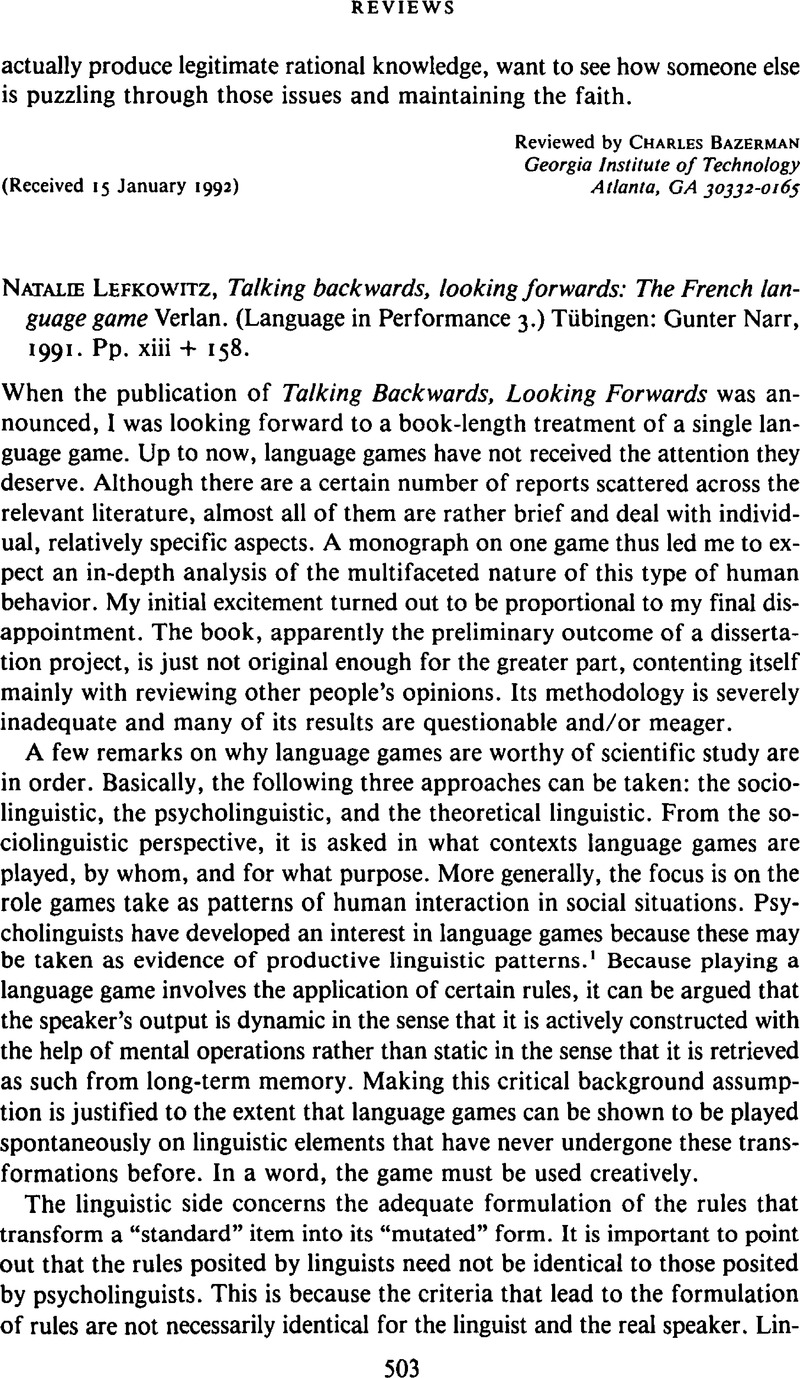No CrossRef data available.
Article contents
Natalie Lefkowitz, Talking backwards, looking forwards: The French language game Verlan. (Language in Performance 3.) Tübingen: Gunter Narr, 1991. Pp. xiii + 158.
Published online by Cambridge University Press: 18 December 2008
Abstract
An abstract is not available for this content so a preview has been provided. Please use the Get access link above for information on how to access this content.

- Type
- Book Review
- Information
- Copyright
- Copyright © Cambridge University Press 1992
References
REFERENCES
Berg, T. (1992). Umrisse einer psycholinguistischen Theorie der Silbe. In Eisenberg, P., Ramers, K. H., & Vater, H. (eds.), Zur Silbe im Deutschen. Tübingen: Gunter Narr. 45–99.Google Scholar
Kirschenblatt-Gimblett, B., & Sherzer, J. (1976). Introduction. In Kirschenblatt-Gimblett, B. (ed.), Speech play. Philadelphia: University of Pennsylvania Press. 1–16.CrossRefGoogle Scholar
Sherzer, J. (1970). Talking backwards in Cuna: The sociological reality of phonological descriptions. Southwestern Journal of Anthropology 26:343–53.CrossRefGoogle Scholar
Trudgill, P. (1972). Sex, covert prestige, and linguistic change in the urban British English of Norwich. Language in Society 1:179–95.CrossRefGoogle Scholar
Walter, H. (1991). Nouveaux mots et nouvelles tournures en français. Praxis des Neusprachlichen Unterrichts 38:291–93.Google Scholar


